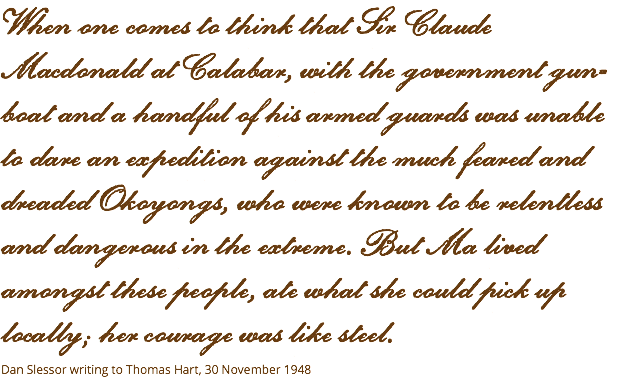As word of ‘The White Ma’ spread around the Calabar district as the years went on, Mary was called on to help sort out local disputes in many difficult situations. Living with the people she was able to understand the detailed intricacies and histories behind local situations and disagreements. She was asked to attend court hearings for the local tribal justice systems and eventually oversee them and give judgements. Her skill in health care and being able to treat a variety of ailments, also enabled her name to become well known and trusted around the region and she would be sought out to give advice and medicine.
Calabar or Southern Nigeria as we now know it, became a British Protectorate in 1900. European countries such as Britain and France were gradually creating more formalised systems in West Africa following a history of trade and colonisation. This brought some benefits, such as new roads, but many problems.
Consul Claud Macdonald who arrived in Calabar in 1891 planned to set up a new system of courts in the area as part of the Protectorate. He had heard about the work of Mary Slessor and asked her about the planned court system. In her usual forthright manner she said that external people trying to settle local disputes would be a disaster. She therefore found herself appointed as his vice-consul to Okoyong appointed by the Secretary of State. She then had to manage challenging situations where she was representing the local people and dealing with British government officials, all of this, while continuing her missionary work and raising her children.
This role did however make her the first female British magistrate.
Dundee City Council, Dundee Art Galleries & Museums: A later photograph of Mary
Below: Sir Claude MacDonald was Commissioner of the Bight of Biafra
Dundee City Council, Dundee Art Galleries & Museums:
The congregation standing outside Itu Church.

Scottish Charity No. SC032781
© Mary Slessor Foundation 2016